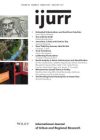In recent years readers of urban studies journals have been regaled with articles on urban development in China. Contrary to expectations, what we read is not a multiplicity of accounts, but instead a repetition of one story: (a) the land market has emerged in China; (b) however, the market is imperfect; (c) therefore the best policy is to define property rights. It is surprising how uncritically scholars have accepted the idea that the land market has emerged, without defining the concept of the market. Perhaps even more surprising is the approval of the recommendation to define property rights, without asking what the ideology behind such a recommendation is and what social and political consequences it might have. This article will examine and criticize studies of this type. First, I will reconstruct what seems to be a new fashion in real estate and urban development studies, and then criticize its weaknesses, which are connected to the ambiguity of the concept of the market, insufficient empirical evidence, and ontological and ideological problems.
Details
Written by:
ANNE HAILA
Digital Object Identifier (DOI)
10.1111/j.1468-2427.2007.00703.x
About DOI
Read full article as PDF
Read full article as HTML
See the references for this article
